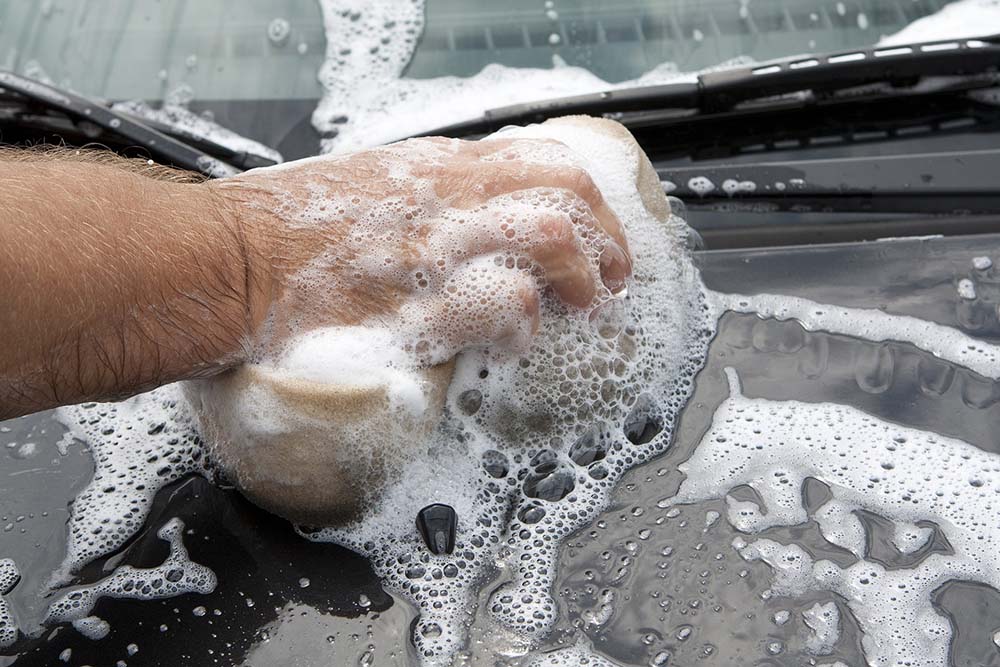The Earliest Cleaning Agents: Ashes and Sand
The earliest cleaning agents used by humans were ashes and sand. People used ashes in ancient times to clean their clothes, dishes, and homes. Ashes have a high alkaline content, which makes them effective in removing dirt and grease. People would collect wood ash, mix it with water, and use it to clean their clothes and dishes. Ash was also used to clean floors and walls.
The sand was another cleaning agent used by our ancestors. People would use sand to scrub clothes clean. The sand was also used to clean floors and walls. It was particularly useful in removing stubborn stains.
While ashes and sand were effective cleaning agents, they had their limitations. For instance, they were not suitable for use on delicate fabrics, and they could be abrasive on surfaces such as wood.
Roman Cleaning Detergents: Soapwort and Fuller's Earth
The Romans were known for their hygiene practices and developed several cleaning detergents. One of the detergents they used was Soapwort. Soapwort is a plant that has natural foaming properties. The Romans would collect Soapwort, crush it, and mix it with water to make a cleaning solution. This solution was used to clean clothes, dishes, and homes.
Fuller's Earth was another cleaning detergent used by the Romans. Fuller's Earth is a type of clay that can absorb oil and dirt. The Romans would mix Fuller's Earth with water to make a paste, which they then used to clean clothes. Fuller's Earth was particularly useful in removing stains.
The Romans' cleaning detergents were more effective than ashes and sand and were suitable for use on various surfaces. However, they were still less effective than modern detergents.
Egyptian Cleaning Detergents: Natron and Castor Oil
The Egyptians were also known for their hygiene practices, and they developed several cleaning detergents. One of the detergents they used was Natron. Natron is a naturally occurring mineral that has alkaline properties. The Egyptians would mix Natron with water to make a cleaning solution. This solution was used to clean clothes and dishes.
Castor oil was another cleaning detergent used by the Egyptians. Castor oil is a vegetable oil that has cleansing properties. The Egyptians would mix Castor oil with Natron to make a paste, which they then used to clean clothes. Castor oil was particularly useful in removing stains.
The Egyptians' cleaning detergents were more effective than the Romans, and they were suitable for use on various surfaces. However, they were still less effective than modern detergents.
Greek Cleaning Detergents: Lye and Olive Oil
The Greeks were also known for their hygiene practices, and they developed several cleaning detergents. One of the detergents they used was Lye. Lye is a caustic soda that can dissolve grease and dirt. The Greeks would mix Lye with water to make a cleaning solution. This solution was used to clean clothes, dishes, and homes.
Olive oil was another cleaning detergent used by the Greeks. Olive oil is a vegetable oil that has cleansing properties. The Greeks would mix Olive oil with Lye to make a paste, which they then used to clean clothes. Olive oil was particularly useful in removing stains.
The Greeks' cleaning detergents were more effective than the Egyptians, and they were suitable for use on various surfaces. However, they were still less effective than modern detergents.
Viking Cleaning Detergents: Birch Ash and Urine
The Vikings were known for their cleanliness and developed several cleaning detergents. One of the detergents they used was Birch Ash. Birch Ash is a type of ash that has a high alkaline content. The Vikings would mix Birch Ash with water to make a cleaning solution. This solution was used to clean clothes, dishes, and homes.
Urine was another cleaning detergent used by the Vikings. Urine is a natural source of ammonia, which has cleansing properties. The Vikings would collect urine and mix it with water to clean it. This solution was used to clean clothes.
The Vikings' cleaning detergents were effective, but they had their limitations. For instance, they were not suitable for use on delicate fabrics, and they could be abrasive on surfaces such as wood.
Chinese Cleaning Detergents: Rice Water and Tea Seed Powder
The Chinese were known for their hygiene practices and developed several cleaning detergents. One of the detergents they used was Rice Water. Rice Water is the water that is left over after washing rice. Rice Water has natural cleansing properties; the Chinese collect it and use it to clean their clothes.
Tea Seed Powder was another cleaning detergent used by the Chinese. Tea Seed Powder is made from the seeds of the tea plant, and it has cleansing properties. The Chinese would mix Tea Seed Powder with water for cleaning. This solution was used to clean clothes.
The Chinese cleaning detergents were effective, but they had their limitations. For instance, they were not suitable for use on delicate fabrics, and they could be abrasive on surfaces such as wood.
Native American Cleaning Detergents: Yucca and Amole
The Native Americans were known for their hygiene practices and developed several cleaning detergents. One of the detergents they used was Yucca. Yucca is a plant that has natural cleansing properties, and the Native Americans would collect it and use it to clean their clothes.
Amole was another cleaning detergent used by the Native Americans. Amole is made from the roots of the soap plant, and it has cleansing properties. The Native Americans would mix Amole with water to make a cleaning solution. This solution was used to clean clothes.
The Native Americans' cleaning detergents were effective, but they had their limitations. For instance, they were not suitable for use on delicate fabrics, and they could be abrasive on surfaces such as wood.
The Rise of Commercial Detergents: From the Middle Ages to the Industrial Revolution
The Middle Ages saw the rise of commercial detergents. Soapmaking became a popular occupation, and soap was produced in large quantities. The soap was made from animal fat and ashes and used to clean clothes, dishes, and homes.
The Industrial Revolution brought about significant changes in the soapmaking industry. Soap was produced on a larger scale, and new ingredients such as coconut oil and palm oil were used to make soap. The new elements made soap more effective, and it was suitable for use on a variety of surfaces.
The Impact of Detergents on Society and Hygiene
The advent of modern detergents has had a significant impact on society and hygiene. Detergents have made it easier and more convenient to keep our clothes, dishes, and homes clean. They have also helped to improve hygiene and prevent the spread of disease.
However, modern detergents also have their drawbacks. They contain chemicals that can be harmful to the environment and cause skin irritation and other health problems.
Eco-Friendly Cleaning Solutions Inspired by Ancient Methods
In recent years, there has been a growing interest in eco-friendly cleaning solutions. Many of these solutions are inspired by ancient cleaning methods. For instance, natural ingredients such as vinegar, baking soda, and lemon juice are used to make cleaning solutions.
Eco-friendly cleaning solutions are less harmful to the environment and can be just as effective as modern detergents. They are also less likely to cause skin irritation and other health problems.
Conclusion: The Importance of Cleanliness and the Role of Detergents in Our Lives
Cleanliness is essential to our well-being, and over the centuries, people have developed various ways to keep themselves and their surroundings clean. Our ancestors used different cleaning agents to maintain hygiene, from ashes to suds. Modern detergents have made it easier and more convenient to keep our clothes, dishes, and homes clean. However, they also have their drawbacks.
Eco-friendly cleaning solutions inspired by ancient methods offer a viable alternative to modern detergents. They are less harmful to the environment and can be just as effective. Regardless of our cleaning methods, the importance of cleanliness must be balanced. Cleanliness is essential to our health and well-being and should be a priority.
Welcome to Genesis Supplies, where you can find top-notch, environmentally friendly, and biodegradable cleaning products. We pride ourselves on being one of the leading distributors in North America and working with many eco-conscious cleaning product companies in the US and Canada. Our vast selection of cleaning supplies includes biodegradable items for restaurants, hotels, and offices. Rest assured that we have everything you need. Come and visit us today to get your hands on the best green cleaning supplies!



